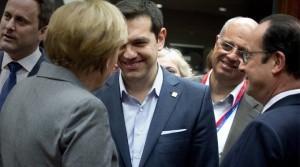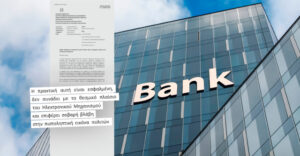A specific timetable to achieve a long-sought agreement between Greece and its creditors will be the focus of this evening’s face-to-face talks in Brussels between EU Commission president Jean-Claude Juncker and Greek PM Alexis Tsipras.
A high-level Eurozone “source” noted that the procedure and timetable for a “compromise at the technical level” will be discussed.
A first initial deal at the technical level will open the way for a Euroworking Group meeting followed by a Eurogroup sesssion, where any final deal will be approved.
Wednesday’s Euroworking Group teleconference was postponed for Thursday, delayed after the Tsipras-Juncker meeting.
The same source, however, ruled out a Eurogroup before June 11. where the Euroworking Group will convene in Bratislava, before the next Eurogroup meeting on June 18.
On his part, however, the EC president stated that “I still have some problems to solve with Greece, something which calls for some meetings today, including one with the Greek PM”.
According to EC representative Margaritis Schinas, Juncker and Tsipras will evaluate the negotiations so far, without expecting any new developments, at least on Wednesday.
On his part, Eurogroup head Jeroen Dijsselbloem warned that hard work was still needed to reach a deal between Greece and its creditors.
Asked by journalists as he arrived at the European Commission building on whether we should expect a deal tonight, Dijsselbloam said the meeting between the two men is important but no decisions will be made.
The Dutch official was accompanied by the president of the Eurogroup Working Group (EWG) Thomas Wieser.
Nevertheless, one top correspondent, the Economist’s Tom Nuttall, quoted Brussels sources as confident of an agreement on Thursday by “almost 100 percent”.
Earlier in the day during a teleconference between Tsipras, German Chancellor Angela Merkel and French President Francois Hollande, the three leaders reportedly agreed on Athens’ long-standing request to post lower primary budget surpluses.
The SYRIZA government wants to increase spending, within budget constraints, in a bid to jump-start the economy.
During the 20-minute conference call, Tsipras told Merkel and Hollande that his government has not received any framework agreement text by institutional creditors (EC, ECB, IMF).
On Wednesday, separately, Merkel said the euro area officials were urgently working to iron out an agreement in a shortest time possible.
Athens faces payments to the IMF and other bondholders over the summer, with the next payment owed to the IMF being 300 million euros on Friday.
With state coffers dwindling and deposits in Greek reduced, the radical leftist government is eagerly trying to free-up 7.2 billion euros in money left in the second bailout package.
Ask me anything
Explore related questions





